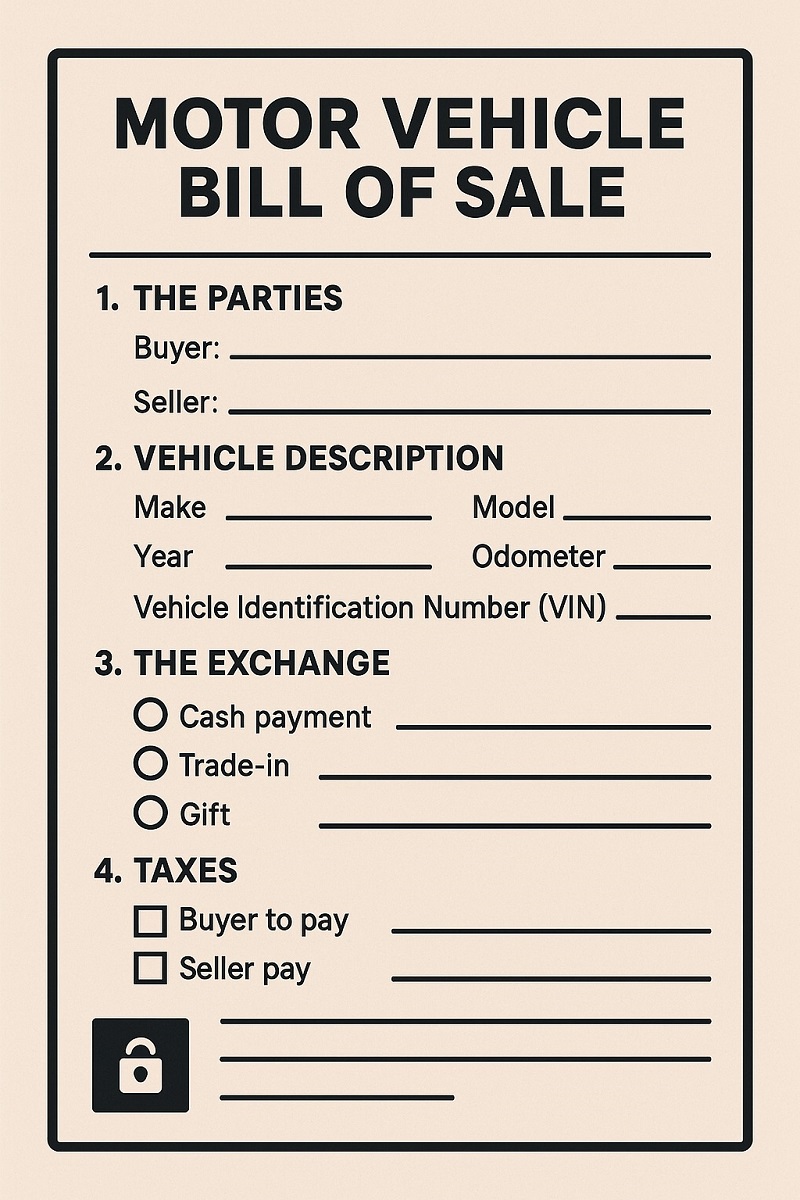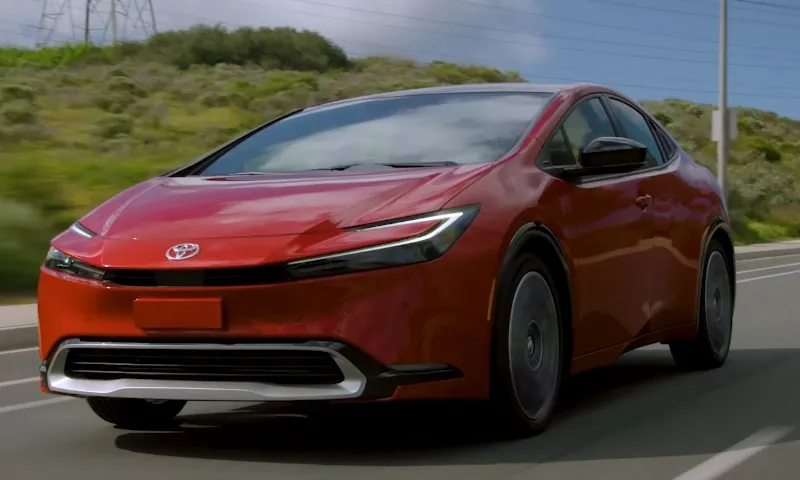
Share Post:
To transfer a car title to a family member, you’ll need the vehicle’s title (or a title application), signatures from both parties, ID info, basic vehicle details (make, model, VIN, etc.), and sometimes, depending on your state, a notary, a bill of sale, and gift affidavit. Oh, and yes, taxes or fees might still apply, even if no money is changing hands.
First up, the title is not the same thing as your registration. A lot of people mix those up. The title is the legal proof of ownership. It’s the state’s official record of who owns the car – name, address, and all. It also shows whether there’s a loan on the car (that’s the “lienholder”), plus all the juicy details like the VIN, make, model, and year.
No title? No transfer. Period.
Table of Contents
ToggleThe Family Transfer: Common Scenario
Let’s say you’re handing your car over to your teenage kid who just got their license. You’re not “selling” it to them in the traditional sense, just passing it on. The state usually treats this the same as a sale unless you check a special box saying it’s a gift. (And even then, they may still want their cut.)
Bottom line: yes, the same general rules apply as if you were selling the car, but with a few key differences, mostly around taxes and documentation. Let’s get into the step-by-step.
What You’ll Need to Transfer a Car Title
Here’s your checklist. Most of this is required no matter where you live, but some states have extra quirks. More on that in a bit.
The Vehicle Title (or Duplicate)

This is the big one. The current owner – you – needs to sign over the title to the new owner – your family member. Don’t use a pencil. Don’t cross stuff out. Some states will throw it back at you for even the smallest scribble.
Make sure:
- The odometer reading is included (if required – varies by vehicle age/state)
- It’s signed in the right spot by both parties
- You’re using black or blue ink only
- You follow any notary requirements (more on that below)
Title Transfer/Application Form
You’ll usually fill out a title application in addition to the title itself. This form collects:
- Full names and addresses of both parties
- Driver’s license numbers
- Vehicle info (VIN, make, model, etc.)
Whether there’s a lienholder - Date of “sale” or transfer
- Estimated value or sale price
Every state calls it something slightly different, like a “Title and Registration Application” or a “Statement of Facts.” Find yours on your state DMV’s website.
ID Information
Both parties will need valid photo IDs, usually state-issued driver’s licenses. Bring the originals when you head to the DMV (or mail in copies if your state allows remote submission).
Bill of Sale (Highly Recommended)

Even if no money changes hands, a bill of sale is a good move. It gives you one more record of what happened, when, and to whom, especially important if something weird happens down the road.
Some states, like California, require it for all transfers. Others don’t. Either way, it can be helpful.
Include:
- The names and addresses of both parties
- Date of transfer
- Description of the vehicle
- Sale price (or “gift” noted)
- Signatures of both parties
Gift Affidavit (Sometimes)
If you’re transferring the car as a gift (not for money), your state might require a gift affidavit – a simple statement saying the vehicle was given with no money exchanged. Some states, like Texas and Virginia, ask for this to waive certain taxes.
What About Notaries?
Yep, some states won’t accept a signed title unless it’s notarized. That means you and the person receiving the car need to sign it in front of a certified notary public.
Here are the states that require a notary for title transfers:
| State | Notary Required for Title Transfer? |
| Arizona | Yes |
| Kentucky | Yes |
| Louisiana | Yes |
| Montana | Yes |
| North Carolina | Yes |
| Ohio | Yes |
| Oklahoma | Yes |
| Pennsylvania | Yes |
Will You Pay Taxes or Fees?

Now we’re getting into the part that surprises a lot of people.
Even if no money’s exchanged, your state may still charge sales tax based on the vehicle’s estimated value – unless they offer a gift exemption.
Here’s how it breaks down:
States With No Sales Tax on Vehicles
Lucky you if you live in:
- Alaska
- Delaware
- Montana
- New Hampshire
- Oregon
No sales tax means no worries on that front. You’ll still likely pay a title transfer fee and registration.
States That Waive Taxes for Gifts
Many states waive or reduce sales tax if the car is gifted to a family member. In Texas, for example, if you’re giving the car to your kid, spouse, parent, or grandparent, they’ll just pay a $10 gift tax. That’s it.
In California, you’ll need to submit a Statement of Facts form to claim the gift exemption. If it’s between family members, they won’t tax it – but only if you do the paperwork right.
In Florida, you can avoid the sales tax too, but only if the transfer is between immediate family and you file a gift affidavit.
Once the title’s been successfully transferred, your family member – the new owner – still needs to register the car in their name. In most states, title transfer and registration are part of the same process and typically handled in one trip to the DMV (assuming you’ve got all your documents in order). It’s a key step, not just for legality but for things like insurance coverage and road use. Registration fees vary depending on the state, the type of vehicle, and sometimes even where you live within the state. Most places charge for a few specific things: a title transfer fee, a base registration fee, and, in some cases, a plate fee if new license plates are being issued. To give you a real-world example, in Illinois, as of 2025, the title transfer fee is $155, and a standard passenger vehicle registration is $151. So even if you’re giving the car away for free, the new owner could still be looking at around $300 in fees just to get everything official. And here’s a good time to flag something important: before the new owner hits the road, they’ll need active insurance on the vehicle; many DMVs won’t even let you register the car without proof of coverage. If you or your family member is shopping around for a policy, it’s worth taking a few minutes to compare the best auto insurance companies to see who offers the right mix of coverage, service, and pricing. Rates can vary wildly depending on age, location, and driving history, so a quick comparison now could save you hundreds later. If the car’s coming from out of state – maybe your brother’s sending you his old SUV from Arizona while you live in Colorado – the process involves a few more moving parts. First, you’ll need to have the out-of-state title properly signed over to you. That means your brother (the current owner) will need to complete the title transfer on his end and mail you the original, signed title. Once you have that title in hand, you’ll take it to your local DMV along with your completed title application, valid ID, and proof of insurance. Many states – Colorado included – will also require a VIN inspection to verify that the vehicle matches the documentation. It’s a simple check, usually done by law enforcement or a DMV-certified inspection station, but don’t skip it – the DMV won’t process your paperwork without it.Don’t Forget Registration
If cars are From Another State?
What If You Lost the Title?
It happens. A surprising number of people misplace their vehicle titles. You’re not stuck, but you’ll need to request a duplicate title before you can transfer anything.
Check your state’s DMV or DOT website for the right form. In New York, for example, it’s called MV-902 and costs $20. In Florida, it’s HSMV 82101 and also runs around $20–$25.
Heads-up: Only the current owner can request a duplicate. So if you’re trying to give away a car and you’re not the legal titleholder, the process gets way more complicated.
When the Car Doesn’t Require It
Some states don’t issue titles for very old vehicles. If you’re transferring a 1970s pickup or an ancient Civic, you might not need a title at all – just a bill of sale and proof of ownership.
Here’s a quick cheat sheet:
| State | No Title Required If Vehicle Is… |
| Alabama | 1979 and older |
| Connecticut | 21 years old or older |
| Georgia | 1985 and older |
| Maine | 1994 and older |
| Massachusetts | 1989 and older |
| New Hampshire | 16 years old or older |
| New York | 1972 and older |
| Rhode Island | 2000 and older |
| Vermont | 16 years old or older |
One Last Thing: Liability
Until the title and registration are updated, you’re still legally on the hook for what happens with the vehicle. That includes:
- Parking tickets
- Tolls
- Accidents
- Insurance liability
So don’t delay the paperwork. Even if it’s your kid, cousin, or Aunt Linda – make sure it’s all transferred before they start driving the car.
Related Posts:
- 8 Safest Family Cars of 2025 – Crash Tests, Features…
- Buying a Car with a Rebuilt Title in 2025 - Pros,…
- What Does the M Mean in a Car - Everything You Need to Know
- How to Get Sticker off Car Window - Easy, No-Scratch Methods
- Is It Bad to Leave the AC on in Your Car When You…
- What Happened to JFK’s Assassination Car? - The…










